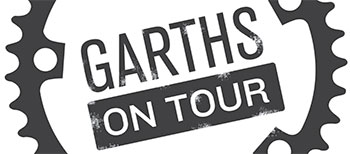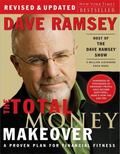Today is the day of departure for our friends Thomas and Estelle. (Check out their web site at intothewheel.com!) Thomas and Estelle were our Warmshowers hosts in Paris, and the few days we spent in their home ended up being one of the best hosting experiences we had over the course of our whole journey. Shortly after we arrived home, Thomas and Estelle made two big announcements–first, that they were getting married, and second, that they were going to tour the world by bicycle for their honeymoon.
In honor of their setting out today, I thought I would do a post with some practical tips for saving money for a big adventure. A lot of people have asked us about how we managed to stop working and travel for two full years. I had originally jotted down this idea for a blog entry as “saving for a bike tour,” but I realize not everyone’s dream is a bike tour. And realistically, a lot of people’s dreams are even more affordable than ours was! (In case you never saw it, here’s the post about the entire cost of our two-year trip.) Just this week, Dave and I were talking to someone about our trip and she said, “My dream is to do something like that!” And we believe that she can! Especially with how fortunate we are here in the US, so many people have the means to slowly and surely save up for a trip like this. We were able to do it not because we made oh-so-much money, but because we chose, in small and practical ways, to live frugally–all with the vision of our world bike tour before us. So here are some financial tips we would give to others who are interested in making their dreams happen–whatever those dreams may be!
1. Get/Stay out of debt.
If you’re in debt, and you want to start planning for a big trip, your first step is to get OUT of debt. It’s going to be hard to save much money if most of your income is going out in payments every month… whether it be for a car, student loans or credit cards. Pay more than the minimum amount! Pay it off! That’s when you will really have more income that you can start squirreling away toward the big dream.
If you have a car payment that’s already high, and you couldn’t pay extra on it, why not trade down for a lower-value vehicle? Seriously… which is more valuable? Driving a nice car or getting to live out that dream you’ve always had? It was not unusual for Dave to get some feedback on the quality of his car–a 1991 Nissan Sentra with paint fading and hand-crank windows. But the car served its purpose–Dave was able to get to work each day. Did he do so in style? No. And later, some of those same people who might have made comments about the quality of his car expressed some small level of jealousy that we were able to just take off for two years without working.
Dave and I were fortunate to have both finished school with no debt. We had credit cards only for the convenience of not carrying cash… we never put more on our card than what we had on hand in the bank. We paid it off every month, never losing money to the unreasonable interest rates credit cards often charge.
(The one exception to the “no-debt rule” we would say is a house. We own a house in Auburn, and kept it the entire time we were gone on the Tour. We were fortunate enough to have good and reliable renters, who always paid on time and didn’t trash our house in our absence. But even that is a risk! We recognize we were extremely fortunate. A mortgage payment is really the most reasonable form of debt.)
For more thoughts and inspiration about getting out of debt, check out Dave Ramsey! He’s a great resource for helping people get their finances on the right track. www.daveramsey.com
2. Skip the cable.
More and more people are opting out of cable TV, and we’re feeling less like we’re in the minority these days! And cable is just one example of recurring costs–things you pay every month. While these don’t necessarily need to be the focus of your savings (not having cable might save you about $500/year), it is certainly something of which you should take note. If you think about ALL your recurring costs, they add up fast–cell phones with lots of data, special cable packages, abnormally high power bills… all of these are examples of things that might take a bigger chunk of your monthly income than you are realizing. Where can you cut back? What’s really essential? Choose wisely, and the savings can add up.
3. Stop eating out.
Actually, you don’t have to stop completely. But how many times a week are you eating out? We could count it on one hand… and often with one finger. It is so much more affordable to grocery shop and eat at home! And even in that, we carefully monitored our purchases so we weren’t spending excess on food we didn’t really need. Sure, we occasionally splurged and bought some ice cream (always the cheap store brand!), but you wouldn’t find our pantry full of expensive snacks or Cokes or beer. Now, we might have erred a bit on the side of being too cheap with our food at times… and we’re doing better about that in this new season of life. We’re trying to be a bit more balanced, and no longer do we eat peanut butter and jelly sandwiches EVERY SINGLE DAY for lunch at work. But even so, we barely eat out, because we know that expense can pile up fast.
4. Know where your money is going.
This might be the most important thing. Do you have a monthly budget? Do you have a good idea of where your money goes each week? We weren’t always the absolute best about this, but we tried to track all our expenses so we knew what we were really spending money on. This takes a lot of discipline, but this might be the biggest key to saving big. I think most people just don’t realize how much of their income is going out the door when they go to Hobby Lobby and casually spend $50, while drinking their $4 latte from Starbucks. Obviously one trip like this is not going to ruin you. But maybe the next week it’s a quick stop in Target and you pick up three or four shirts. And the next week it’s just that one pair of shoes… you get the idea. Repeated shopping ventures, without careful planning and intention, will affect your saving ability drastically. I have no solid proof, but I think this is where most Americans lose income without realizing it.
I’m not saying you can’t go shopping–everyone needs to make their house a home, everyone needs clothes, everyone has to eat. But these trips should be planned for, not sporadic. We knew how much money we were spending in all these areas, especially toward the end of our season of saving. (I will say, we barely spent any money on clothes in the last year, because we knew that everything we bought would have to be stored upon our departure, so we cut back significantly in that area.)
So there you go… no rocket science, just a few practical tips from us on what we did to save for our world travels. I can’t say this enough–it was not how much money we were making that enabled us to do this… it was how we chose to live our life on a day-to-day basis. After we came home, I read a book by Dave Ramsey called “Total Money Makeover,” where he helps walk people through the process of getting out of debt and starting to build financial stability and wealth. As I read, so much of what he said resonated with me, and this quote in particular stuck out:
“If you live like no one else, later you can live like no one else.”
And that’s the best way to sum it up! As Dave Ramsey also says, “Normal is broke… be weird!” We opted out of a lot of “luxuries” that might be considered normal, but because we chose to chart our own course, particularly in the area of finances, we were able to live out a dream that we shared. Whatever your dream may be, you can do it too! And the time to start is now.
Our best wishes to Thomas and Estelle as they set out on their grand adventure!


